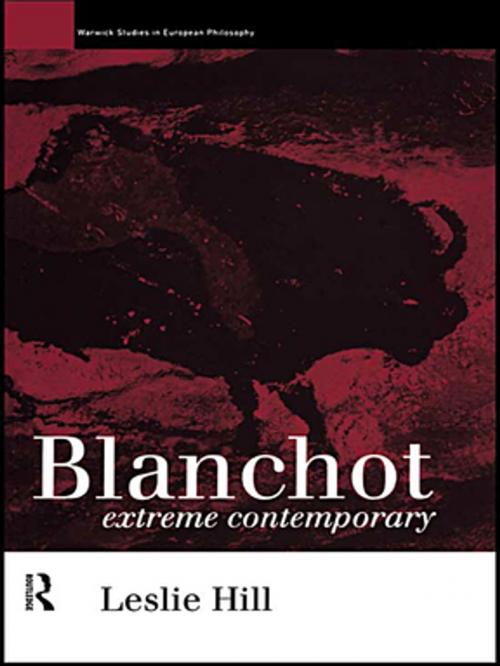| Author: | Leslie Hill | ISBN: | 9781134873777 |
| Publisher: | Taylor and Francis | Publication: | January 4, 2002 |
| Imprint: | Routledge | Language: | English |
| Author: | Leslie Hill |
| ISBN: | 9781134873777 |
| Publisher: | Taylor and Francis |
| Publication: | January 4, 2002 |
| Imprint: | Routledge |
| Language: | English |
Blanchot provides a compelling insight into one of the key figures in the development of postmodern thought. Although Blanchot's work is characterised by a fragmentary and complex style, Leslie Hill introduces clearly and accessibly the key themes in his work. He shows how Blanchot questions the very existence of philosophy and literature and how we may distinguish between them, stresses the importance of his political writings and the relationship between writing and history that characterised Blanchot's later work; and considers the relationship between Blanchot and key figures such as Emmanuel Levinas and Georges Bataille and how this impacted on his work.
Placing Blanchot at the centre stage of writing in the twentieth century, Blanchot also sheds new light on Blanchot's political activities before and after the Second World War. This accessible introduction to Blanchot's thought also includes one of the most comprehensive bibliographies of his writings of the last twenty years.
Blanchot provides a compelling insight into one of the key figures in the development of postmodern thought. Although Blanchot's work is characterised by a fragmentary and complex style, Leslie Hill introduces clearly and accessibly the key themes in his work. He shows how Blanchot questions the very existence of philosophy and literature and how we may distinguish between them, stresses the importance of his political writings and the relationship between writing and history that characterised Blanchot's later work; and considers the relationship between Blanchot and key figures such as Emmanuel Levinas and Georges Bataille and how this impacted on his work.
Placing Blanchot at the centre stage of writing in the twentieth century, Blanchot also sheds new light on Blanchot's political activities before and after the Second World War. This accessible introduction to Blanchot's thought also includes one of the most comprehensive bibliographies of his writings of the last twenty years.















